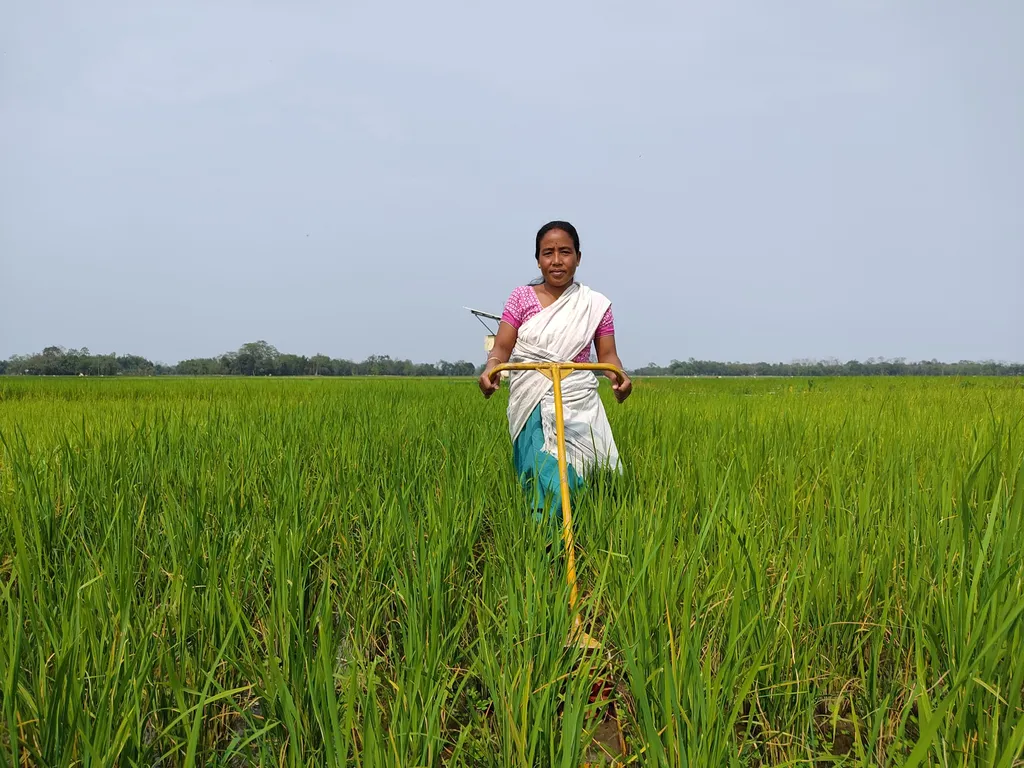In the heart of Assam, India, a team of researchers led by Raghuvar Tiwary from the Department of Botany at The Assam Royal Global University is digging deep into the roots of rice plants, quite literally. Their work, published in the journal *Frontiers in Plant Science* (translated from the original name *Frontiers in Plant Physiology*), is uncovering insights that could revolutionize rice farming and contribute to climate change mitigation.
Rice, a staple crop for nearly half the global population, faces increasing threats from climate change, including drought, salinity, and nutrient deficiencies. Tiwary and his team are exploring how deep root architecture in rice plants can enhance resilience to these challenges. “Deep root systems allow rice plants to access water and nutrients from deeper soil layers, making them more tolerant to drought and improving their overall yield stability,” Tiwary explains.
The research delves into the genetic, physiological, and hormonal regulation of deep root development in rice. Key genes like DEEPER ROOTING 1 (DRO1), qSOR1, and SOR1 play crucial roles in regulating root growth angle and depth. Additionally, aquaporins and hormonal pathways, including auxin, cytokinin, ethylene, abscisic acid, and gibberellin, modulate root dynamics and water transport.
The implications of this research extend beyond agriculture. Deep root systems in rice plants could potentially serve as a sustainable carbon sink, contributing to climate change mitigation. “By leveraging these innovations, we can enhance rice crop resilience and support sustainable agriculture, ensuring global food security in a changing climate,” Tiwary adds.
The study also highlights the potential of advanced technologies like marker-assisted selection, genome editing (CRISPR-Cas9), and RNA-based technologies in manipulating root traits. These technologies could accelerate the development of climate-resilient rice varieties, benefiting farmers and the agricultural industry.
Moreover, agronomic practices such as deep fertilizer placement can promote rooting depth and resource use efficiency, further enhancing the resilience of rice crops. The research opens up new avenues for sustainable agriculture and climate change mitigation, offering a glimpse into the future of farming.
As the world grapples with the impacts of climate change, Tiwary’s research provides a beacon of hope. By understanding and optimizing deep root architecture in rice plants, we can pave the way for more resilient crops and a more sustainable future. The findings not only promise to bolster food security but also offer a novel approach to carbon sequestration, potentially benefiting the energy sector by reducing carbon footprints.
In the words of Tiwary, “This is just the beginning. The potential of deep root systems in rice is vast, and we are only scratching the surface of what can be achieved.” As we continue to explore and innovate, the future of agriculture looks brighter and more resilient than ever.

